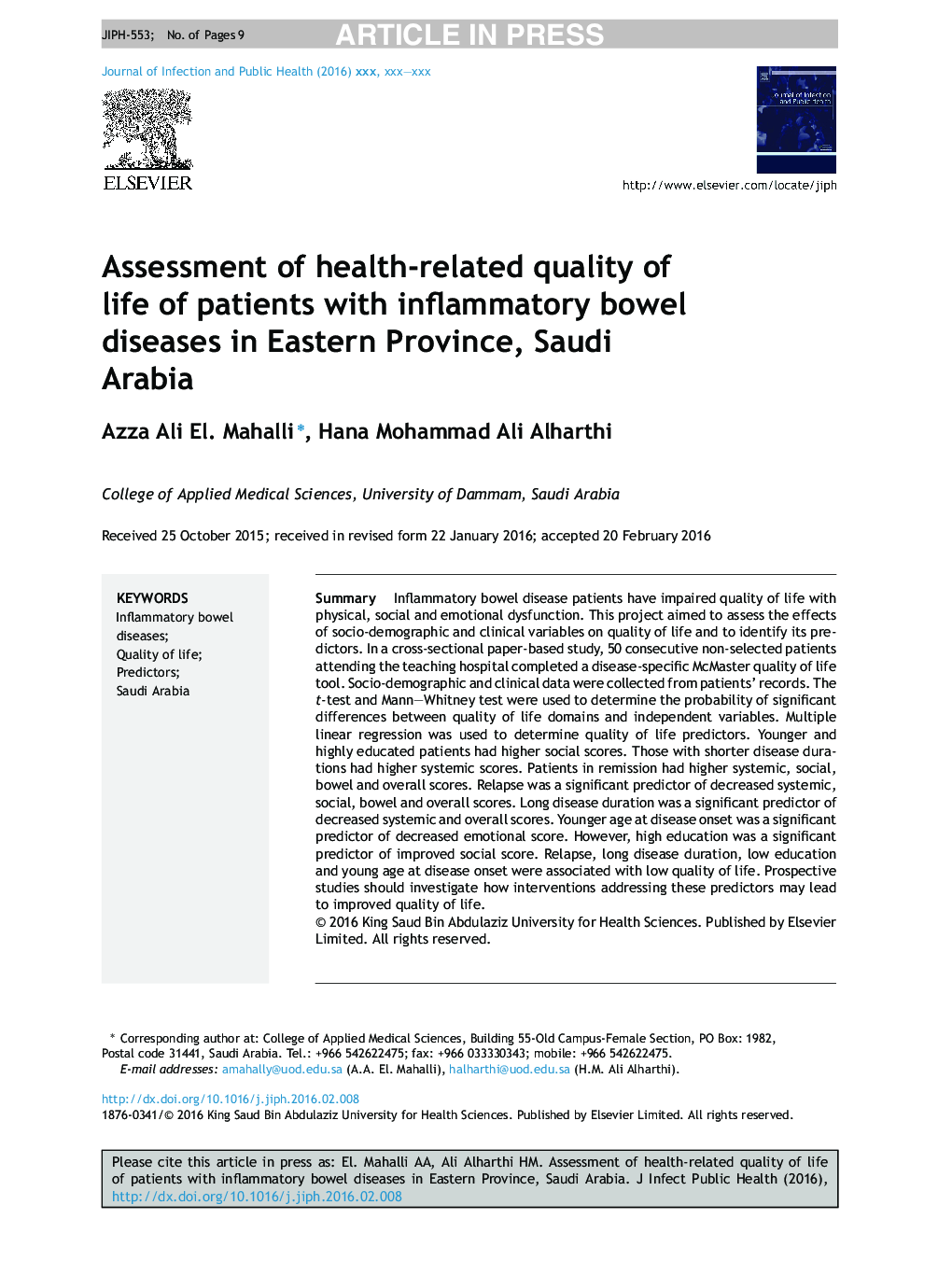| Article ID | Journal | Published Year | Pages | File Type |
|---|---|---|---|---|
| 5672826 | Journal of Infection and Public Health | 2017 | 9 Pages |
Abstract
Inflammatory bowel disease patients have impaired quality of life with physical, social and emotional dysfunction. This project aimed to assess the effects of socio-demographic and clinical variables on quality of life and to identify its predictors. In a cross-sectional paper-based study, 50 consecutive non-selected patients attending the teaching hospital completed a disease-specific McMaster quality of life tool. Socio-demographic and clinical data were collected from patients' records. The t-test and Mann-Whitney test were used to determine the probability of significant differences between quality of life domains and independent variables. Multiple linear regression was used to determine quality of life predictors. Younger and highly educated patients had higher social scores. Those with shorter disease durations had higher systemic scores. Patients in remission had higher systemic, social, bowel and overall scores. Relapse was a significant predictor of decreased systemic, social, bowel and overall scores. Long disease duration was a significant predictor of decreased systemic and overall scores. Younger age at disease onset was a significant predictor of decreased emotional score. However, high education was a significant predictor of improved social score. Relapse, long disease duration, low education and young age at disease onset were associated with low quality of life. Prospective studies should investigate how interventions addressing these predictors may lead to improved quality of life.
Related Topics
Health Sciences
Medicine and Dentistry
Infectious Diseases
Authors
Azza A.E. Mahalli, Hana M.A. Alharthi,
